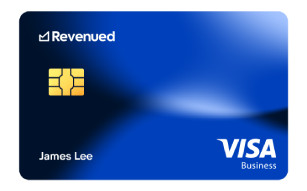Everything You Need to Build & Establish Business Credit
UPDATED ON 2025
3 minutes read
Everything You Need to Build & Establish Business Credit
Good business credit is just as essential for your company as a high personal credit score is for your own financial health. A business credit score reflects your company’s financial responsibility and ability to meet its obligations. But did you know that the benefits of good business credit go far beyond just qualifying for loans?
Why Business Credit Matters
Building credit helps create a financial identity for your business that’s separate from your personal credit, offering protection between business liabilities and your own finances.
Naturally, good business credit makes it easier to access funding. And the more financing options available, the better your business can manage cash flow, handle unexpected expenses, and seize new opportunities, whether through loans or trade credit.
But the benefits don’t stop there. A strong business credit score could help you:
- Secure lower insurance premiums
- Build credibility with vendors, partners, and potential clients
- Improve terms on leasing, purchasing, or vendor contracts
Understand the Difference Between Personal and Business Credit
You’re probably familiar with personal credit scores, which reflect your financial history and help lenders gauge your individual creditworthiness. Business credit works similarly, but there are a few key differences.
- Personal FICO scores range from 300–850
- Business credit scores usually range from 0–100
While personal credit scores are based on FICO algorithms, business credit doesn’t have a single standard scoring model. Instead, agencies like Dun & Bradstreet, Experian, and Equifax use their own formulas and data, including:
- Banking and lending history
- Vendor payment patterns
- Credit lines and repayment trends
- Third-party verified data sources
Also unlike personal credit, business credit reports are public, meaning clients, suppliers, lenders, or even competitors can access your score.
Note: Businesses aren’t entitled to a free credit report each year like individuals are. You’ll generally need to pay to view your full report.
Start Building a Credit History
To establish credit, your business must begin showing up on the radar of reporting agencies. This includes having accounts in your business’s name, such as:
- Trade credit with vendors
- Business credit cards
- Equipment loans or lease agreements
For Dun & Bradstreet, you’ll need to get a D-U-N-S® Number and have payment records with at least three vendors to receive a PAYDEX® score, which measures payment timeliness.
You can check whether your business already has a DUNS number, D&B may have assigned one automatically.
Pull Your Business Credit Reports
Each bureau offers both one-time reports and ongoing monitoring. While some platforms offer free partial reports, you’ll likely need to pay for full access to your business credit score and detailed file.
Monitor Your Business Credit Regularly
Mistakes happen, and they can damage your score. Review your business credit at least every six months, and no less than once per year.
If you find inaccuracies or fraudulent activity, contact the credit bureau immediately to dispute and correct the issue.
RELATED ARTICLES
Tariffs and Small Business: Voices from Across America
Learn MoreHow Important Is It to Have Good Personal Credit as a Business?
Learn MoreExpenses Not To Be Charged on a Business Credit Card?
Learn MoreHow to Remove Hard and Soft Credit Inquiries from Your Report
Learn More
Boost your spending power with the Revenued Business Card
Only pay for what you use at gas stations, hotels, supply stores, supermarkets and more.
Take control with the Flex Line
Check your available balance online and request a cash draw with the tap of your finger, anytime.

